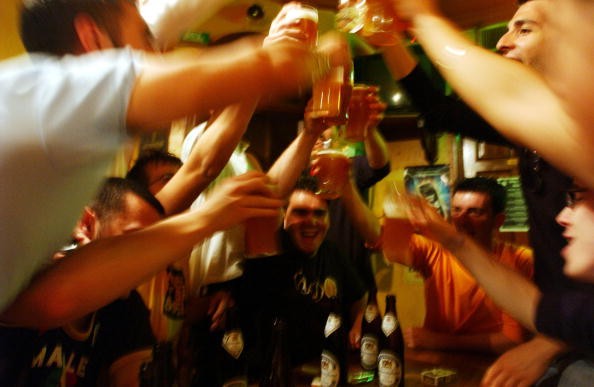
Many college students come up with strategies to protect themselves from the consequences of drinking too much alcohol. But a new study has found that some of these strategies end up with them drinking more alcohol than they planned or expected.
The study, conducted by Melissa A. Lewis of the University of Washington in Seattle and her colleagues, looked specifically at drinking during spring break, the annual week when college students travel somewhere and take part in activities like drinking to excess. Lewis and her colleagues surveyed 694 undergraduate college students, and 131 of their friends, all of whom intended to go on a trip during spring break and who expected to drink heavily on at least one day of that trip.
The students were surveyed before and a week after their trip, using questionnaires that asked them about drinking activities each day of the break and whether "protective" strategies were going to be used. They were also asked questions about the negative consequences of drinking, such as getting into fights, passing out, taking risks, or neglecting obligations. The students said they had an average of five and a half alcoholic drinks per day.
The protective strategies that were used fell into three categories: methods to reduce the risk of harm, such as making sure that you go home with a friend; ways to limit or stop drinking, such as having a friend let you know when you've had enough, and strategies to drink less, such as avoiding drinking games or drinking water between alcoholic drinks.
The study found that the more harm reduction and limiting/stopping strategies that a student employed, the more that student tended to drink on that day, and the greater the consequences. However, strategies to drink less were tied to less drinking and fewer consequences, according to the researchers.
Some strategies that led to more drinking are still sensible, such as having a designated driver, which would prevent drunk driving but not prevent a drunken student from doing something embarrassing.
The study was published in the journal Addictive Behaviors.

